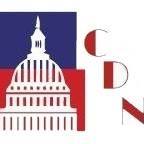



In just a few weeks, the federal government is expected to present President Trump with a plan aimed at addressing the flaws in America’s ticketing industry. As the deadline looms, lobbying efforts are ramping up, and unsurprisingly, Ticketmaster — the industry’s monopolistic giant with strong connections in Washington — is pulling out all the stops to influence the outcome.
Its latest maneuver? Advocating for a federal cap on ticket resale prices, touting it as a measure to protect fans from scalpers.
But let’s be clear: Ticketmaster isn’t genuinely concerned about scalpers. In fact, it profits from the very bots it claims to oppose. Recent emails, uncovered in an August Federal Trade Commission lawsuit, revealed a Ticketmaster employee advising a scalper that if they had succeeded in gaming the system and exploiting loopholes, the tickets they procured didn’t need to be returned.
This revelation speaks volumes about Ticketmaster’s true intentions.
Real ticket reform should focus on robust enforcement of anti-scalping laws to hold Ticketmaster accountable, rather than granting the company a government-backed avenue to crush its competition. Unfortunately, that’s precisely what Ticketmaster’s proposed resale price cap aims to do.
With its vertical integration across venue ownership, artist management, and primary ticket sales, Ticketmaster can absorb any financial setbacks. In contrast, most other ticket platforms would struggle to survive under a government-imposed resale price control.
Once those competitors are eliminated, Ticketmaster would conveniently gain all the business they leave behind, leaving fans at the mercy of whatever fees the monopolistic giant chooses to impose.
In essence, Ticketmaster is attempting to sell the Trump administration a bill of goods, willing to endure short-term setbacks for long-term, monopolistic domination.
This behavior should come as no surprise to anyone familiar with Ticketmaster’s history. The company has been repeatedly accused of using deceptive practices to squeeze out smaller players.
Take the 1990s, for instance, when Pearl Jam sought to challenge Ticketmaster’s iron grip on live music. The band wanted to limit service charges to $1.80, making tickets more affordable for fans. Ticketmaster flatly refused.
When Pearl Jam attempted to book venues outside Ticketmaster’s system, the company retaliated by threatening promoters, putting pressure on arenas, and effectively locking the band out of essential stages.
Though the Department of Justice initiated an antitrust investigation, heavy lobbying pressure from Ticketmaster’s powerful allies ultimately derailed the case, allowing its monopoly to continue growing stronger.
This cycle of behavior has been consistent; Ticketmaster has absorbed competitors, allegedly bribed promoters with upfront cash and kickbacks, and established exclusive contracts with venues to eliminate competition.
Today, Ticketmaster and its parent company, Live Nation, control more than 80% of primary ticketing for major concert venues while also managing venue operations, promoting concerts, and representing artists. This vertically integrated empire dictates prices and terms throughout the live entertainment sector.
However, there is a glimmer of hope: unlike in the 1990s, the government is starting to confront Ticketmaster. Last year, the Justice Department filed an antitrust lawsuit against the company, acknowledging that its long history of anti-competitive practices can no longer be ignored.
Additionally, President Trump has promised to curtail exorbitant ticket prices. Unlike Pearl Jam, which stood almost alone in its fight, fans, artists, and advocates for fair competition today have a powerful ally in the federal government.
Yet, the risk remains that Ticketmaster’s latest scheme — federal resale price caps — could be mistaken for genuine reform because it appears benign on paper.
Fortunately, the Trump administration seems to recognize the pitfalls. Many leaders in the relevant departments are well aware of Ticketmaster’s legacy of crony capitalism.
The administration has already demonstrated its commitment to tackling monopolistic abuses by allowing the Justice Department’s case against Ticketmaster to advance. Now, it’s crucial that they don’t inadvertently give more leverage to the company masquerading as a protector of consumers.
As this issue reaches its climax in the coming weeks, we will witness how it unfolds. But I’m optimistic that when the dust settles, consumers will emerge as the true winners, not the ominous monopoly in the room.
Agree/Disagree with the author(s)? Let them know in the comments below and be heard by 10’s of thousands of CDN readers each day!
Entertainment Industry
